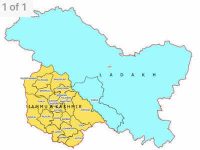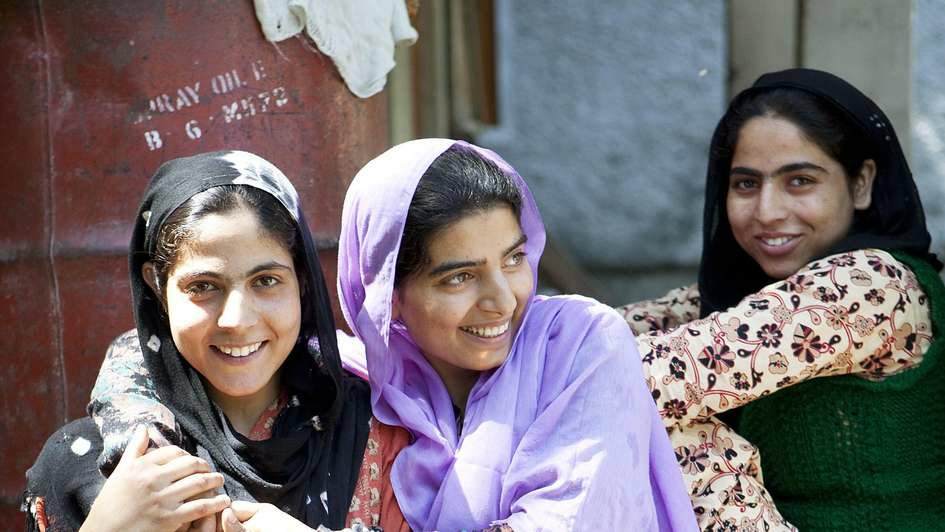UN Resolutions on Kashmir are Null & Void / Krishan Tyagi

Jammu & Kashmir – Ladakh Union Territories
Temporary, Transitional and Special Provisions. Some aspects of Article 370 got diluted over the decades in the fields of judicial system and public administration.
As mentioned, Article 35A did not have any parliamentary sanction and was supposed to be temporary too.
However, there has been no response from the world leaders to Prime Minister Imran Khan’s SOS calls. Saudi Arabia, Malaysia, Britain, France, Canada and other countries either ignored Pakistan’s requests for intervention or told Pak leaders that they were “watching the situation”! The European Union in response actually slammed Pakistan for exporting terror to India and Europe. Thinking that Pakistan might be useful to Americans in Afghanistan, US President Donald Trump flip-flopped between ‘being happy to mediate between India and Pakistan’ and ‘leaving it up to PM Modi to handle the situation’, that excited Pak leadership one minute and depressed the next.
Apart from that small achievement, whereafter Pak foreign minister bragged that “Kashmir issue has been internationalised”, Pakistan drew blank in the international diplomacy. Even the members of the Organisation of Islamic Countries (OIC) and other Muslim countries did not support Pakistan on the issue. Actually as a slap in the face for Imran Khan, the UAE made its stand loud and clear that the removal of Article 370 from its Constitution was India’s internal matter.
Let us look at the UNSC Resolutions in detail and their brief background –
At the UN Security Council, in relation to the Jammu and Kashmir dispute, Resolutions 38, 39, 47, and 51 were passed in 1948, Resolution 80 was passed in 1950, Resolution 91 was passed in 1951 and Resolution 122 in 1957.
Among them, the main resolution was the UNSC Resolution 47, adopted on 21 April 1948, wherein the proposal to hold a plebiscite in Jammu and Kashmir was made, that we will be looking in more details in the coming paragraphs.
Before that the Resolution 38 of 17 January 1948 called upon both India and Pakistan to take immediate measures (including public appeals) to improve the situation on the ground, and to refrain from doing anything which might aggravate the situation. Under the Resolution 39 of 20 January 1948, the UNSC constituted a Commission, called UN Commission for India and Pakistan, to resolve the dispute between them over the state of Jammu and Kashmir.
The Resolution 51 of 03 June 1948 was just a follow up of Resolution 47 directing the UN Commission to visit the areas of dispute. However, as detailed below, for years no progress took place on Resolution 47 and the story of further Resolutions is that of disagreements over the withdrawal of troops.
its nationals from Kashmir, ie the parts of the state that it occupied through, as seen by the UNSC, an unlawful invasion. To quote the original text, the Resolution said: “The Government of Pakistan should undertake to use its best endeavours to secure the withdrawal from the state of Jammu and Kashmir of tribesmen and Pakistani nationals not normally resident therein who have entered the state for the purpose of fighting, and to prevent any intrusion into the State of such elements and any furnishing of material aid to those fighting in the State.”
In the second step, India was asked to progressively reduce its forces to the minimum level required for law and order. The Resolution said, “when it is established to the satisfaction of the Commission (UN Commission for India and Pakistan) set up in accordance with the Council’s resolution 39 (1948) that the tribesmen are withdrawing and that arrangements for the cessation of the fighting have become effective, the Government of India should put into operation in consultation with the Commission a plan for withdrawing their own forces from Jammu and Kashmir and reducing them progressively to the minimum strength required for the support of the civil power in the maintenance of law and order.”
In the third step, India was asked to appoint a Plebiscite Administrator nominated by the United Nations who would conduct a free and impartial plebiscite. “When the Indian forces have been reduced to the minimum strength”, outlining the conditions such as equitable representation of both India and Pakistan in the administrative bodies for a fair plebiscite the Resolution laid out the third step, “The Government of India should undertake that there will be established in Jammu and Kashmir a Plebiscite Administration to hold plebiscite as soon as possible on the question of the accession of the State to India or Pakistan.”
As can be seen from the original text of the Resolution, the proposed three steps to resolve the Kashmir dispute were to be taken in sequence, meaning the second step was to be taken up on the completion of the first one, and the third step was to be taken up on the completion of the second one.
Pakistan never withdrew its nationals from Kashmir, the territory internationally called ‘Pak Occupied Kashmir’. And, because Pakistan did not take the first step that it was asked to, and thus even the first condition for conducting the plebiscite did not get fulfilled, things did not move further.
So, the reality of the UNSC Resolutions on Kashmir is that it was Pakistan that defied the UNSC directions and did not leave the parts of Kashmir that it occupied through an unlawful invasion, rendering the UNSC Resolution ineffective.
In fact, the founder and first Governor General of Pakistan Muhammad Ali Jinnah did not believe in a plebiscite. On 1 November 1947 Jinnah rejected Indian Governor General Lord Mountbatten’s proposal to decide the accession of Junagarh, Hyderabad and Kashmir by an ‘impartial reference to the will of the people’. His reply to Lord Mountbatten was that a plebiscite was unnecessary and states should accede according to their majority population. Jinnah was willing to urge Junagarh to accede to India in return for Kashmir. When Mountbatten suggested that the plebiscite could be conducted by the United Nations, Jinnah again rejected the proposal, hoping that the invasion would succeed and Pakistan might lose a plebiscite. According to constitutional expert AG Noorani, Jinnah ended up squandering his leverage.
Later for the plebiscite, Jinnah demanded simultaneous troop withdrawal, but it was not accepted as the UNSC accepted the legitimacy of Indian forces in Jammu and Kashmir because of the Instrument of Accession, while Pakistani forces invading the state was seen as an hostile and unlawful act. And thus Pakistan did not withdraw its nationals as directed by the UNSC. In fact, in a complete violation of the UNSC Resolution, in May 1948 the Pakistani army officially entered the conflict.
that State of Pakistan transformed itself into another State called Bangladesh in 1971, a fully-fledged Member State of the United Nations in its own right since. So, a smaller part of the erstwhile State of Pakistan cannot claim itself to be the inheritor of that State of Pakistan which was the party to the dispute with India, even if it calls itself Pakistan, as the present day India cannot make claims on behalf of the India of Ashoka’s or even British times. In the concerned UNSC Resolution, present day Bangladesh, the then East Pakistan, was a joint claimant as a part of Pakistan. The present day Pakistan can only pursue that claim if Bangladesh joins it in pursuing that claim.
. All Rights Reserved.
Astronomers have for the first time discovered water in the atmosphere of an exoplanet with Earth-like temperatures that could support life as we know it. K2-18b, which is eight times the mass of Earth, is now the only planet orbiting a star outside the Solar System, or ‘exoplanet’, known to have both water and temperatures that could be potentially habitable, according to the study published in the journal Nature Astronomy. The planet orbits the cool dwarf star K2-18, which is about 110 light years from Earth in the Leo constellation, researchers said.Water found for first time on potentially habitable planet, say astronomers – The Hindu
K2-18b is now the only planet orbiting a star outside the Solar System known to have both water and temperatures that could be potentially habitable
Rejoice Daughters of J&K; RIP Article 370 / Neelam Jain

